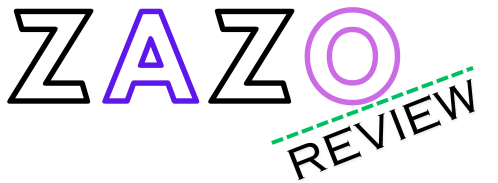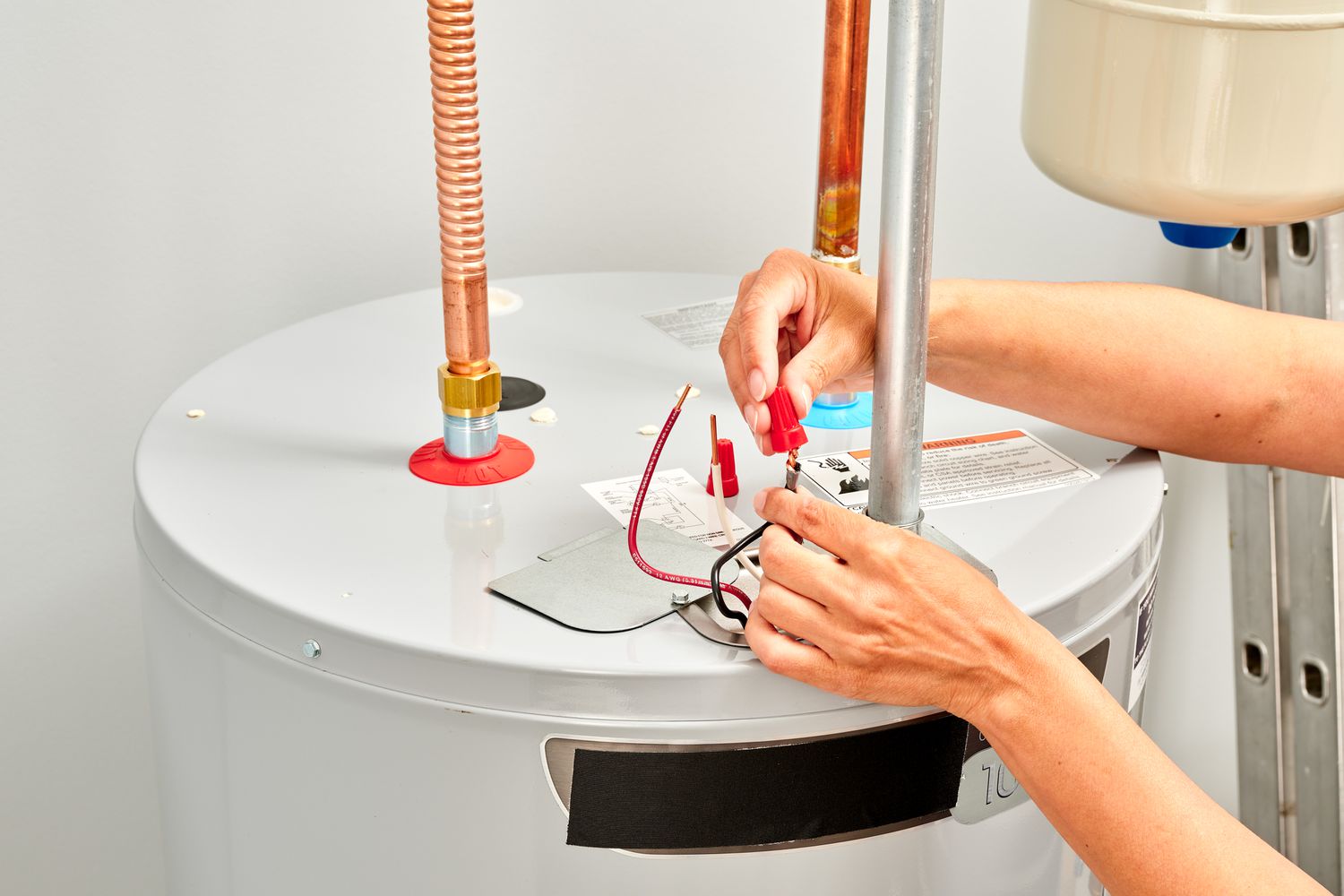The wiring requirements for an electric water heater are crucial to ensure safe and proper installation. From determining the appropriate wire size and breaker size to following local electrical codes and regulations, careful attention must be paid to guarantee optimal performance and prevent any potential hazards.
Unveiling Electric Water Heater Wiring
Discover everything you need to know about electric water heater wiring requirements in Austin, Texas. Learn how to wire a hot water heater, install a thermostat, and read wiring diagrams for proper installation. Find step-by-step tutorials and expert advice to ensure the safety and efficiency of your electric water heater.
Understanding Electrical Terms Related To Water Heaters
Before we delve into the requirements for wiring an electric water heater, it’s essential to be familiar with some electrical terms associated with water heaters. By understanding these terms, you can better comprehend the importance of proper wiring for safe and efficient operation.
| Term | Definition |
|---|---|
240V |
The standard voltage required for most electric water heaters. |
220V |
An alternative voltage option for some electric water heaters. |
Amp breaker |
A safety device that protects the electrical circuit from overload. |
Conduit |
A protective tubing used to house electrical wires. |
Importance Of Correct Wiring For Safety And Efficiency
When it comes to electric water heaters, correct wiring is of utmost importance. Proper wiring ensures not only the safety of your home and occupants but also the efficiency of the water heater itself. Inadequate or incorrect wiring can lead to various issues, including:
- Potential electrical hazards such as short circuits and electrical shocks
- Poor heating performance due to incorrect voltage or wire gauge
- Increased energy consumption and higher utility bills
- Reduced lifespan of the water heater components
Therefore, it’s crucial to adhere to the recommended wiring requirements to ensure the safe and efficient operation of your electric water heater.
Impact Of Wiring On Water Heater Performance
The wiring of an electric water heater directly affects its overall performance. Let’s explore some key factors that highlight the impact of wiring:
- Voltage: Electric water heaters are designed to operate at specific voltages (usually 240V or 220V). Using the correct voltage is essential to ensure adequate heating capabilities and prevent potential damage to the water heater.
- Wire Gauge: The appropriate wire gauge should be used based on the water heater’s electrical requirements. Using the wrong wire gauge can result in insufficient power delivery, leading to slower heating and reduced performance.
- Circuit Breakers: Circuit breakers protect the electrical circuit from overload. Using the proper amp breaker is crucial to prevent overheating and potential fire hazards.
- Conduit: The use of conduit helps protect the wiring from physical damage and ensures compliance with electrical codes and regulations.
By understanding the impact of wiring on water heater performance, you can make informed decisions and take the necessary steps to achieve optimal efficiency and longevity.

Credit: www.amazon.com
Essentials Of Wiring Your Electric Water Heater
When it comes to wiring your electric water heater, there are a few essential factors to consider. Determining the correct wire size, choosing the right cable and conduit types, and understanding the wiring requirement differences between tank and tankless water heaters are all important considerations. Let’s take a closer look at each of these factors.
Determining The Correct Wire Size
It is crucial to determine the correct wire size for your electric water heater installation. Using the wrong wire size can result in overheating, electrical hazards, and ultimately, damage to your water heater. To ensure safe and efficient operation, refer to the National Electrical Code (NEC) guidelines for determining the appropriate wire gauge based on the heater’s voltage and ampere rating.
Choosing The Right Cable And Conduit Types
Choosing the right cable and conduit types is equally important for a successful electric water heater wiring installation. The cable and conduit you select must be rated to handle the current load of the water heater. Typically, a cable with a higher ampere rating and suitable for the heater’s voltage is recommended. It is also essential to use conduit that is approved for use with electrical wiring to provide proper protection.
Wiring Requirement Differences: Tank Vs. Tankless
Wiring requirements can vary between traditional tank water heaters and tankless water heaters. Traditional tank water heaters usually require a dedicated circuit with larger wire size and breaker due to their higher ampere rating. On the other hand, tankless water heaters may have different voltage requirements and may need additional circuits and wire sizing considerations. Always refer to the manufacturer’s specifications and local electrical codes for accurate wiring requirements.
Navigating Electric Water Heater Wiring Requirements
When it comes to installing an electric water heater, understanding the wiring requirements is crucial. Proper wiring ensures the safety and efficiency of the appliance, while also adhering to national and local electrical codes. In this guide, we will simplify the electric water heater wiring requirements, taking into account the considerations of the National Electric Code (NEC) and local regulations. We will also cover the circuit breaker requirements for electric water heaters, providing you with the information you need for a successful installation.
Electric Water Heater Wiring Requirements: A Simplified Guide
Understanding the wiring requirements for an electric water heater can seem overwhelming at first. However, breaking it down into simple steps can make the process much easier. Let’s take a closer look at the key points to consider:
- Voltage: Electric water heaters typically operate on either 240V or 220V power supply. It is essential to ensure that your water heater is compatible with the voltage available in your home.
- Wire Size: The NEC specifies the minimum wire size based on the water heater’s ampacity rating. Refer to the manufacturer’s instructions and the NEC to determine the appropriate wire size for your specific water heater.
- Conduit: The wiring must be protected and housed in suitable conduit. This helps prevent damage and keeps the wires organized and accessible for future maintenance or repairs.
- Grounding: Proper grounding is essential for electrical safety. Make sure to connect the ground wire securely to the water heater and abide by the NEC guidelines for grounding.
- Junction Box: The electrical connections for your water heater should be housed in a junction box. This box provides a safe and accessible location for the wiring connections.
National And Local Electrical Code Considerations
When it comes to electrical installations, it is crucial to adhere to both national and local electrical codes. The National Electrical Code (NEC) provides guidelines and requirements for electrical installations across the United States. However, local regulations may add additional requirements or modify certain aspects of the NEC.
Before starting the wiring process for your electric water heater, it is highly recommended to consult the NEC and your local electrical authority. By doing so, you can ensure compliance with the necessary codes and regulations specific to your area.
Circuit Breaker Requirements For Electric Water Heaters
Circuit breakers play a vital role in protecting the electrical system from overloading and short circuits. The circuit breaker size required for your electric water heater depends on several factors like the water heater’s ampacity rating and the wire size used.
The NEC provides guidelines for the correct circuit breaker sizing based on the water heater’s ampacity and wire size. It is essential to follow these guidelines to prevent electrical hazards and ensure the system’s safe operation.
Remember to turn off the circuit breaker before starting any electrical work and consult a qualified electrician if you are unsure about the circuit breaker requirements for your specific installation.
Step-by-step Electric Water Heater Wiring
When it comes to installing an electric water heater, proper wiring is essential for safe and efficient operation. Whether you’re replacing an old unit or installing a new one, understanding the step-by-step electric water heater wiring process is crucial. In this guide, we’ll walk you through the necessary pre-wiring checklist, safety precautions, detailed wiring instructions, and provide tips for a successful installation.
Pre-wiring Checklist
Before you begin wiring your electric water heater, it’s important to go through a pre-wiring checklist to ensure a smooth and hassle-free installation. Here’s what you need to do:
- Gather all the required tools and materials, including wire connectors, wire strippers, electrical tape, and a voltage meter.
- Turn off the power supply to the water heater at the circuit breaker panel.
- Check the water heater’s specifications and make sure you have the correct wire size and circuit breaker size for the unit.
- Ensure that the water heater is in the correct location and properly supported.
- Inspect the existing electrical wiring and disconnect any old connections.
Safety Precautions
Safety should be your top priority when working with electricity. Follow these safety precautions to prevent accidents and injuries:
- Always wear protective gear, such as gloves and safety glasses, when working with electrical wiring.
- Ensure that the power is turned off at the circuit breaker panel before starting any wiring work.
- Use a voltage meter to double-check that there is no voltage present before touching any wires.
- Avoid working in damp or wet conditions and keep the work area dry.
- Do not attempt any wiring if you are unsure or lack the necessary knowledge and skills. It’s always best to consult a licensed electrician.
Detailed Guide To Wiring An Electric Water Heater
Now that you’ve completed the pre-wiring checklist and are aware of the safety precautions, let’s walk through the step-by-step process of wiring an electric water heater:
- Turn off the power supply to the water heater at the circuit breaker panel.
- Remove the electrical access cover from the water heater.
- Identify the incoming power wires and the wires from the water heater.
- Strip the insulation off the wires and connect them using wire connectors.
- Secure the wire connections with electrical tape.
- Replace the electrical access cover on the water heater.
- Turn on the power supply at the circuit breaker panel and test the water heater to ensure it’s functioning properly.
Tips For A Successful Electric Water Heater Installation
Here are some tips to keep in mind for a successful electric water heater installation:
- Read the manufacturer’s installation instructions carefully and follow them precisely.
- Ensure that the water heater is properly grounded for safety.
- Use wire connectors and electrical tape to secure the wire connections and prevent any loose or exposed wires.
- Regularly check the water heater for signs of wear or damage and perform routine maintenance to prolong its lifespan.
- If you encounter any difficulties or have any uncertainties during the installation process, it’s best to consult a professional electrician.
Troubleshooting Common Wiring Issues
Proper wiring is essential for the safe and efficient operation of an electric water heater. However, wiring issues can occur, leading to performance problems or even electrical hazards. In this section, we will explore common wiring problems, how to identify and resolve them, recognize symptoms of faulty wiring, and provide preventative measures and maintenance tips.
Identifying And Resolving Wiring Configuration Problems
Incorrect wiring configurations can cause your electric water heater to malfunction or not work at all. It is crucial to identify and resolve these issues promptly. Here are some common wiring configuration problems:
- Inverted hot and neutral wires
- Loose or damaged wiring connections
- Insufficient wire gauge
- Improperly sized circuit breakers
- Turn off the power supply to the water heater at the circuit breaker.
- Inspect the wiring connections for any loose or damaged wires.
- Correct any inverted hot and neutral wires by swapping their positions.
- Ensure the wire gauge and circuit breaker size meet the manufacturer’s requirements.
- Tighten all wiring connections securely.
Recognizing Symptoms Of Faulty Electric Water Heater Wiring
Faulty wiring can manifest in various ways, and recognizing these symptoms can help you troubleshoot and address the issue effectively. Here are some common symptoms of faulty electric water heater wiring:
- Intermittent or no hot water
- Tripped circuit breakers
- Burnt or discolored wiring
- Blown fuses
- Strange odors or noises
If you experience any of these symptoms, it is essential to take immediate action. Check the wiring connections, inspect for any damage or loose wires, and consult a professional if necessary.
Preventative Measures And Maintenance Tips
Taking preventative measures and following maintenance tips can help you avoid wiring issues in your electric water heater. Here are some recommendations:
- Regularly inspect the wiring connections for any signs of wear, damage, or loose wires.
- Clean the water heater’s electrical panel and remove any debris.
- Ensure the wire gauge and circuit breaker size are appropriate for the water heater’s power requirements.
- Consider installing surge protectors to safeguard against electrical surges that can damage the wiring.
- Keep the area around the water heater clean and free from flammable materials.
By following these preventative measures and practicing regular maintenance, you can minimize the risk of wiring issues and enjoy the reliable performance of your electric water heater.
Frequently Asked Questions On Electric Water Heater Wiring Requirements
Can I Use 10 3 Wire For A Hot Water Heater?
Yes, you can use a 10-3 wire for a hot water heater.
What Are The Electrical Requirements For A 40 Gallon Electric Water Heater?
The electrical requirements for a 40 gallon electric water heater are typically 240V or 220V. It is important to follow all local electrical codes and regulations when installing the wiring for the water heater.
What Gauge Wire Do I Need For 240v Water Heater?
To properly wire a 240v water heater, you will need a gauge wire that is appropriate for its amperage requirements. It is recommended to consult with a licensed electrician to determine the right wire gauge for your specific water heater model.
What Is The Nec Code For A Water Heater?
The NEC code for a water heater can vary depending on the specific installation and electrical requirements. It is recommended to consult the National Electrical Code (NEC) and local building codes to ensure compliance. Proper wiring and installation are crucial for safety and efficient operation.
Conclusion
Understanding the wiring requirements for an electric water heater is crucial for a safe and efficient installation. By following the proper guidelines and regulations, you can ensure that your water heater operates effectively and minimizes the risk of electrical hazards.
Remember to consult a professional electrician if you are unsure about any aspect of the wiring process. Taking the time to install your electric water heater correctly will provide peace of mind and reliable hot water for years to come.

I am a Water Heater specialist writer and blogger based in the USA & UK. I have been working with Water Heater for six long years. And I give trips on various Water Heater problems and solutions. I have a lot of experience with Water Heater And I share them here

